Israel-Hamas War: What happened on Day 115?
Israel nearing Khan Yunis victory • Israeli security delegation lands in Cairo •
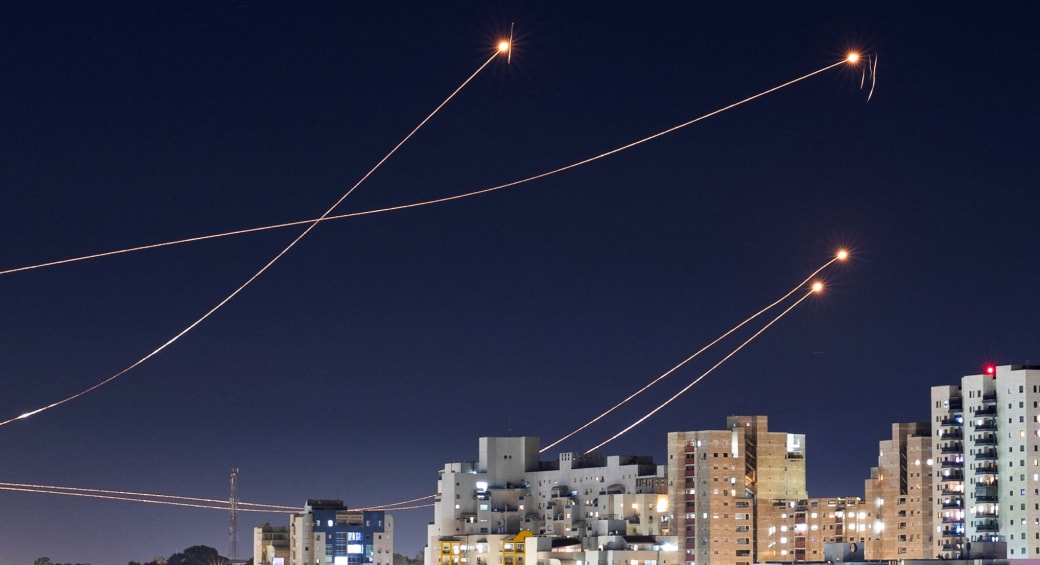

Hamas rejects hostage deal - report
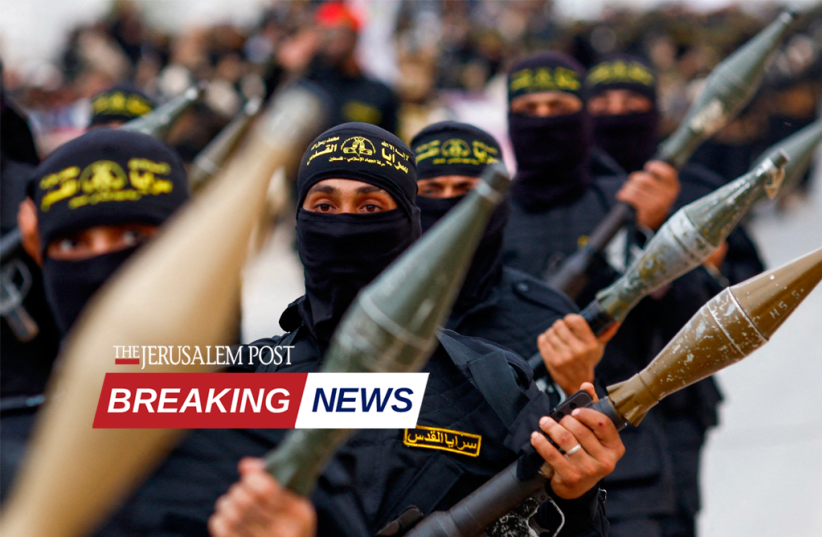
Following reports of an upcoming hostage deal, Hamas has rejected the proposal, Israeli media reported on Monday.
Go to the full article >>Gadi Eisenkot bashes Israeli ministers who called to resettle Gaza
War cabinet minister Gadi Eisenkot on Monday morning berated Israeli ministers and MKs who took part in a conference calling for the reestablishment of settlements inside the Gaza Strip the night before.
"Those who participated...have not learned a thing from the past year," the former IDF chief of staff said in a statement. "They host events to divide Israeli society and increase the existing lack of trust in the government and its representatives, while IDF troops are battling shoulder-to-shoulder in a righteous war."
Go to the full article >>Saudis, Egypt, Jordan, and PA meet in secret to discuss future of Gaza - report
Arab nations met to discuss the future of the Gaza Strip and what "the day after" will look like. Saudi Arabia emphasized moving forward with normalization of diplomatic ties with Israel.
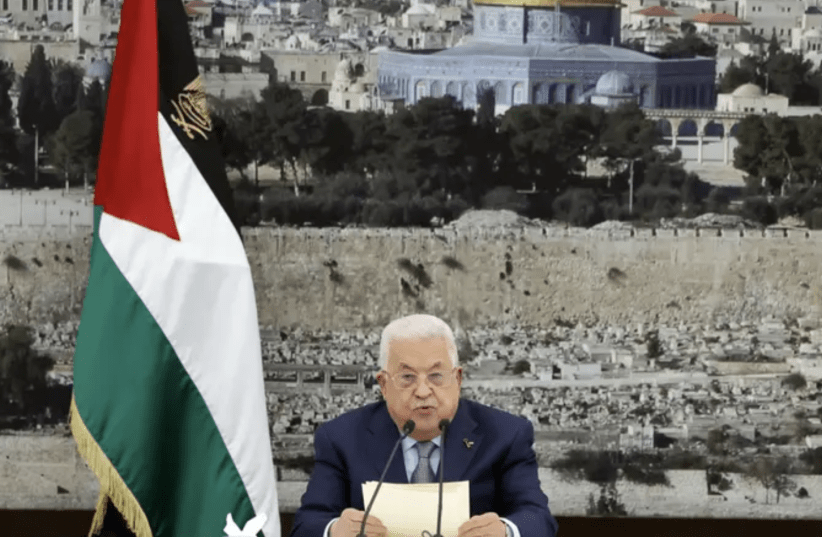
Saudi Arabia, Egypt, Jordan, and the Palestinian Authority (PA) held a secret meeting in Riyadh about a week ago, focused on plans for Gaza governance when the war is over. They also reportedly discussed ways in which a "renewed Palestinian Authority" can take part in the management of the Strip, according to several sources.
The meeting indicates that the Palestinian Authority and the Arab countries are making progress in planning moves for "the day after" the war in Gaza.
Meanwhile, in Israel, the same discussions are underway, though no solutions have been accomplished so far.
The meeting in Riyadh was organized by the Saudi National Security Adviser Musad Al-Aiban and was attended by the Palestinian General Intelligence Chief Majed Faraj, the Egyptian Intelligence Chief Abbas Kamel, and the Jordanian Intelligence Chief Ahmed Hosni.
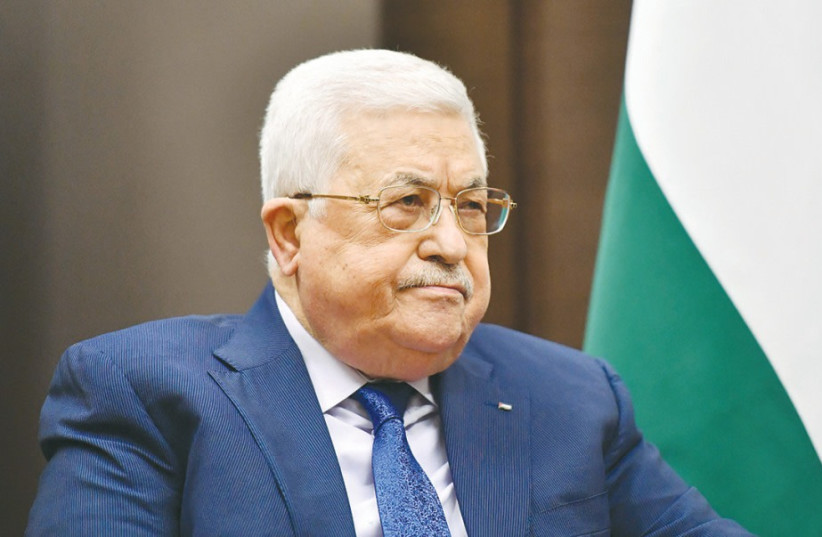
A source close to the matter stated that Israel was informed about the holding of the meeting and its contents by some of the participants.
According to two sources familiar with the contents of the meeting, the Saudis, Egyptians, and Jordanians made it clear to the head of Palestinian intelligence that the PA must carry out reforms that will allow renewal in the leadership ranks as well. This includes the transfer of certain powers from President Mahmoud Abbas (Abu Mazen) to a new prime minister to be appointed.
The Saudis emphasized at the meeting that they are still interested in moving towards normalization with Israel in exchange for practical and irreversible steps on the part of Israel and the international community on the way to a Palestinian state - even if these do not result in the establishment of a Palestinian state immediately.
The embassies of Saudi Arabia, Jordan, and Egypt in Washington did not respond to requests for comment.
Palestinian Authority Civil Affairs Minister Hussein al-Sheikh did not comment.
Yemen's Houthis launched a rocket at US warship in the Gulf of Aden - statement
Yemen's Iran-aligned Houthis launched a rocket at US warship Lewis B. Puller as it sailed through the Gulf of Aden on Sunday, the group's military spokesman said in a statement on Monday.
Go to the full article >>IDF to send soldiers to Gaza's north as Hamas terrorists resurface - report
Sources in the defense establishment accused the political echelon's lack of decisiveness on the future of the Gaza Strip of contributing to Hamas's re-establishment in Gaza's North.
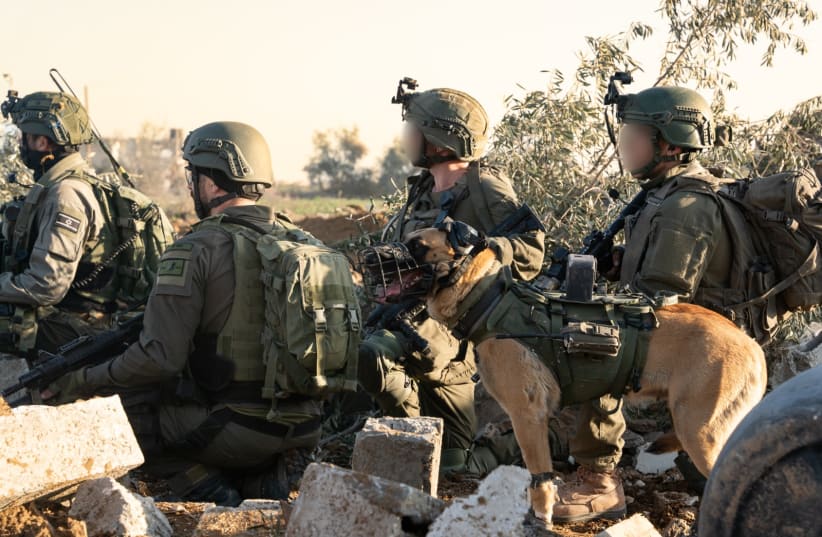
The IDF is expected to ramp up its military presence in the northern Gaza Strip over the upcoming weeks to counter attempts by Hamas to re-establish itself in the area as Israel's focus moves to the south, Army Radio reported on Monday morning.
The Israeli military plans to carry out several divisional raids in the area, some considered extensive, in areas Hamas has targeted in its efforts to reinstate itself in Gaza's northern towns.
According to Army Radio, the IDF estimates that around 2,000 of Hamas's terrorists remain in the northern Gaza Strip, with rockets on Sunday being fired at Ashkelon from the north for the first time in over a month.
The IDF also reported on clashes along Gaza's northern coast over the past 24 hours, with troops locating and destroying a terror tunnel route, killing five terrorists in the process.
According to Israeli assessments, Hamas's senior leadership has long lost contact with its remaining terror forces in the north. The IDF believes remaining terrorists in northern Gaza are being directed by Hamas's commander of its Gaza City division, who remains alive and in hiding.
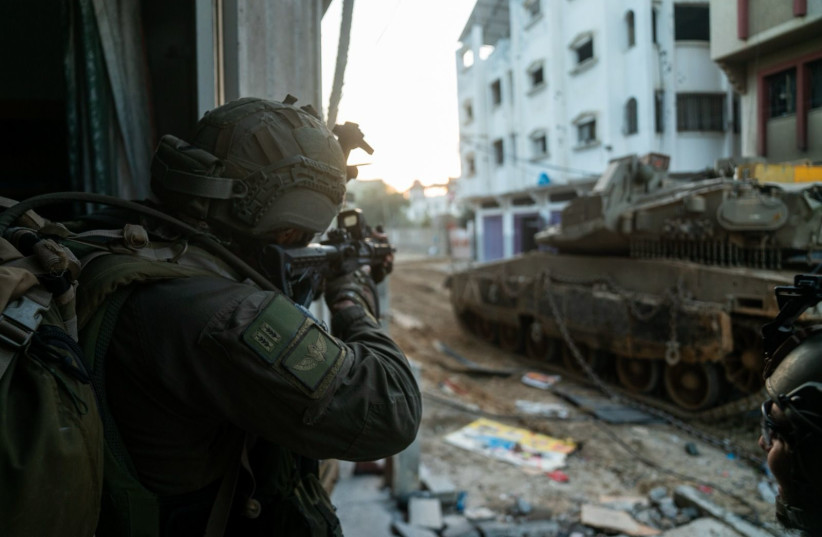
Israel stalling on Gaza's day-after plans, Hamas takes advantage
Sources in the defense establishment cited the political echelon's lack of decisiveness on the future of the Gaza Strip as a contributing factor to Hamas's re-establishment in Gaza's North.
"This is a dire hit to our war efforts," the sources told Army Radio. "Israel is not preparing a civilian alternative for Hamas in Gaza...if there were a body with which we could coordinate the transfer of goods into the north, for example, Hamas would become irrelevant.
"Instead," the sources added, "It is rehabilitating itself in terms of its civilian responsibilities."
Go to the full article >>UNRWA employed Hamas terrorists, including October 7 hostage taker - report
Ten UNRWA employees were described as "Hamas members," and another is believed to be affiliated with the Palestinian Islamic Jihad

The United Nations Relief and Work Agency (UNRWA), employed at least 10 Hamas members, among whom were a school counselor who worked with his son to kidnap an Israeli woman and a social worker who distributed ammunition, US intelligence suggests, according to a report Monday in the New York Times.
A dossier, originating in Israeli intelligence and found credible enough by American officials to warrant action, has circulated among Western officials, the report said. The dossier charges that 12 employees of UNRWA, the UN agency tasked with providing aid to Palestinians and overseeing a majority of the schooling as well as other social services in Gaza, have actively participated in Hamas's war with Israel.
Ten of them were described as "Hamas members," and another is believed to be affiliated with Islamic Jihad, another terrorist group active in Gaza, according to the report.
The intelligence was reportedly gathered in part through monitoring of the employees' cell phones by Israeli intelligence services: some discussed their involvement in the attack, according to the dossier, while three others received text messages directing them to a particular location while the attack was ongoing, and one was told to bring rocket-propelled grenades storied in his home.
In response to the intelligence, the United States has suspended aid to the agency, as have Canada, Australia, Britain, Germany, Italy, the Netherlands, Switzerland, and Finland. The US returned to being one of the organization's largest funders in 2021 when US President Joe Biden restored $200m in funding that the Donald Trump administration had suspended in 2018.
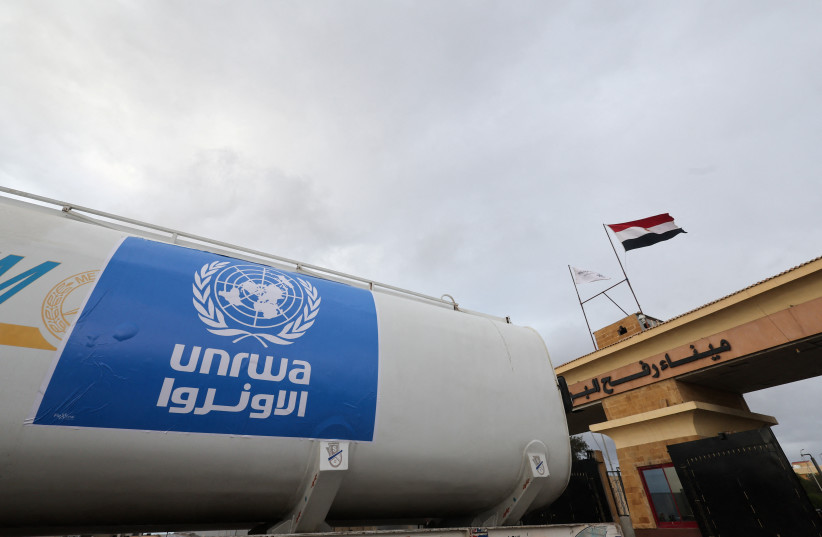
Intelligence echoes report that UNRWA employee held abducted Israeli hostage
Some of the UN employees are believed to have participated in the deadly October 7 attack, during which thousands of terrorists from Gaza invaded Israel, killing more than 1,200 Israelis, a vast majority of whom were civilians, committing acts of rape and sexual violence against Israeli women, and kidnapping an estimated 260 people to hold hostage in Gaza.
Of those hostages, 110 have been released, almost all during a temporary ceasefire in November in which 105 Israeli civilian women and children, as well as foreign workers who were also taken hostage during the attack, were exchanged for 240 Palestinian prisoners, most of whom were detained for security offenses and many of whom were affiliated with Hamas and other terrorist groups. There are still an estimated 132 hostages held captive by Hamas or other terrorists in the Strip.
In November, one released hostage reported having been held in captivity by a UNRWA teacher, according to Israeli media. At the time, the UN agency dismissed the reports as "unsubstantiated claims."
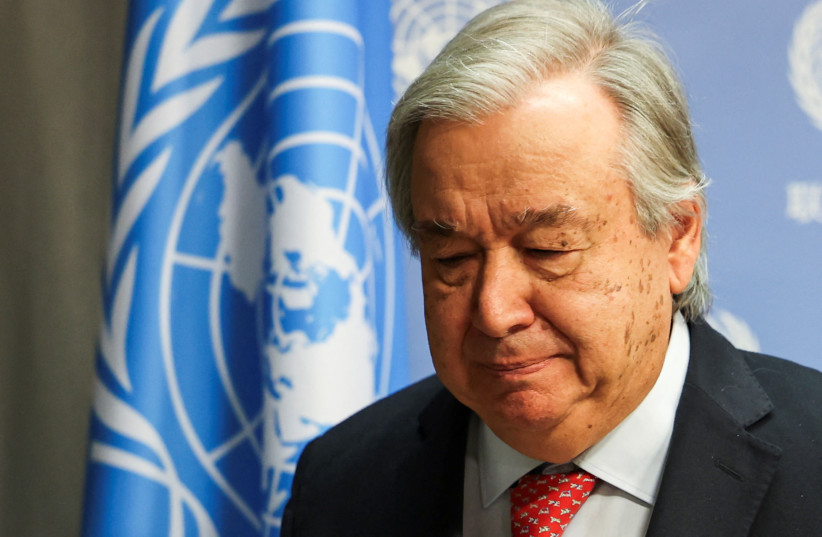
Following the revelation of this intelligence, the agency says that it has fired nine of the 12 employees and that two of the others are dead. António Guterres, the UN Secretary-General, said that he was "horrified by these accusations," but that he "strongly appeal[s]s to the governments that have suspended their contributions to, at least, guarantee the continuity of UNRWA's operations."
The agency is responsible for handling much of the humanitarian aid that has flowed into the Gaza Strip since the Hamas attack on October 7 initiated the current war with Israel, as a result of which tens of thousands of Palestinian civilians have been killed— though official estimates are only available through the Hamas-governed health ministry and do not distinguish between combatants and civilians— and some 2 million have been internally displaced.
Go to the full article >>How Israel can defeat Hezbollah, solve its problem to the North - analysis
The defense establishment may be weighing up a completely different approach to dealing with the terror group, The Jerusalem Post has learned.
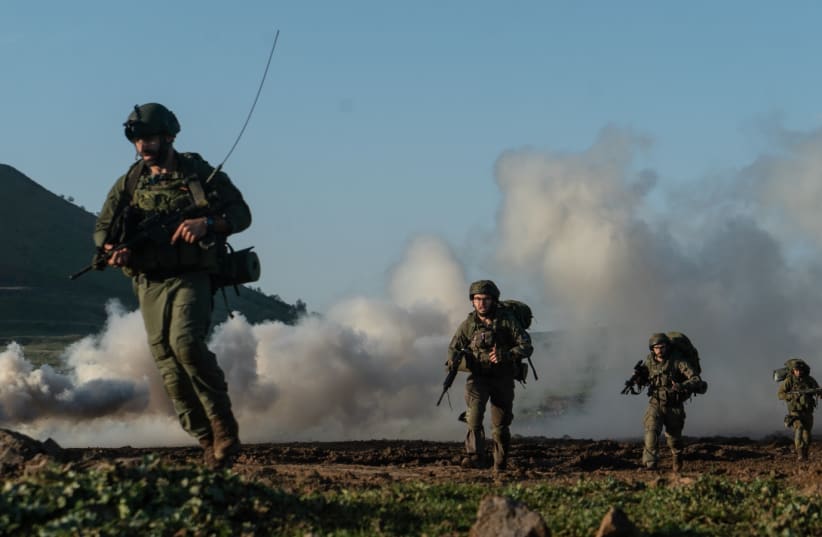
Until now, the conventional wisdom has been that the main dilemma with Hezbollah and its resolution come down to whether Israel can convince Hezbollah to withdraw most of its forces to the Litani River through diplomacy or whether a fuller war will be needed to do this.
The follow-up question would then be how long Israel gives to diplomacy before it goes to war with Hezbollah. Signs are that any major operation would be at least months away.
This would also leave the tens of thousands of northern residents evacuated from their homes in October away from home for an indefinite period.
But there could be a completely different approach that the defense establishment may be weighing an that The Jerusalem Post has learned about.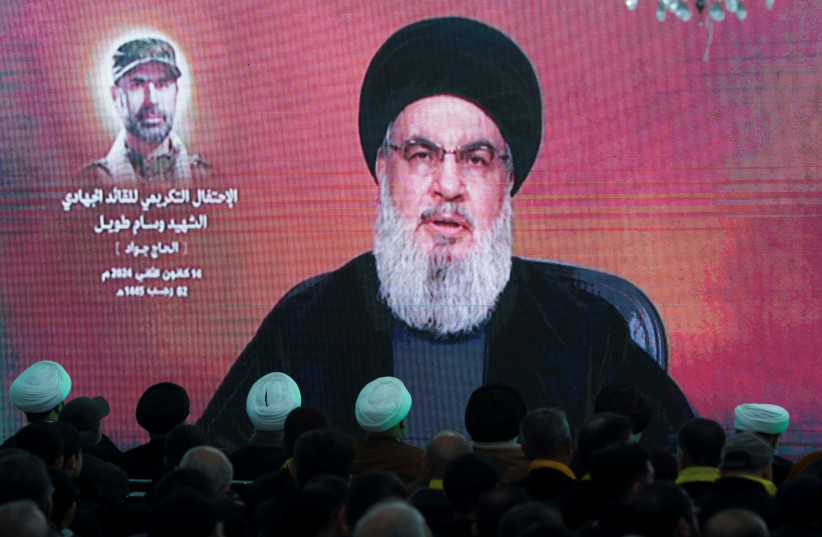
Maybe the northern residents could come back much sooner without a deal and without a full war.
How?
How could Israel's northern residents possibly return?
The Post understands that the crucial elements of this arrangement would be:
1) Keeping two full IDF divisions on the northern border indefinitely, doubling the number of troops of the single division which was there before October 7.
2) Continuing regular IDF attacks on Hezbollah forces south of the Litani which the Post has reported have so far cleared around 75% of the Radwan special forces from the area and 85-95% of the lookout towers.
3) Reaching a deal with Hezbollah which at least ends the rocket and anti-tank fire while continuing the diplomatic talks for a more permanent ceasefire.
4) Encouraging the northern residents to return to their homes based on all of these changed conditions – most importantly the two divisions which remove the invasion danger.
5) Massive economic incentives to compensate for all losses and to encourage returning home.
This would require that the political echelon give an honest accounting to northern residents of what has been accomplished, what can be realistically accomplished in the coming months, and what the nation is unwilling to do in the coming months, that is to go to all-out war with Hezbollah.)
The reason that the Post understands that top defense officials may be unwilling to go to a full war with Hezbollah even in half a year (though they are not saying it out loud), is that the war in Gaza will not be over.
The IDF has tremendous achievements to its credit in Gaza tactically. It has full operational control of northern Gaza, the heart of Hamas’s former rule. It is moving toward operational control of central Gaza and Khan Yunis.
Once Khan Yunis falls, the last of Hamas’s tough battalions will have been taken apart.
Rocket fire from Gaza has plummeted on some days to single digits and some days pass with no rockets at all.
Around 220 IDF soldiers have fallen compared to the 500-1,000 which were predicted in 2014 if a similar operation had been undertaken.
But Hamas is far from dismantled. The rocket fire has not stopped completely. If the IDF does not continue with constant low intensity conflict operations, and with a heavy force complement the terror group could bounce back.
This means that not only large Israeli forces, but also significant Israeli attention will need to remain focused on Gaza to finish the job of paving the way for non-Hamas rule there.
US, EU, and Arab-allied support is also needed to stabilize Gaza going forward.
Starting a war with Hezbollah before that process is near completion could lead to a devastating counter-strike by Hezbollah and undermine allied support for “The Day After.” It could draw needed troops and attention away from Hamas.
Another honest statement by defense or political officials might be to tell northern residents that: even if Hezbollah was as ready as Hamas before October 7 to attack Israel, and even if applying the “concept” of deterrence to Hezbollah Chief Hassan Nasrallah before October 7 was as wrong as it was with Hamas Chief Yahya Sinwar, now that Nasrallah has seen what the IDF has done to Gaza and facing two full IDF divisions on the border – he actually is deterred.
The failure to deter Sinwar one time, does not mean deterrence never works, and cannot work with Nasrallah. Until this war Sinwar also was never hit as hard as Nasrallah in 2006.
None of this would comfort northern residents who much prefer a promise that 100% of Hezbollah will be beyond the Litani and that living on the northern border will never entail any risk ever again. That or to say that the country is revving up for a full war with Hezbollah to solve all of its security issues all at once.
But given how much progress the IDF has already made with Hezbollah and with additional deterrence enhanced by the IDF’s dominance in Gaza, doubling the number of troops, may convince the northern residents to return home sooner rather than later.
Go to the full article >>IDF drone crashes in field upon returning from Gaza mission
An IDF drone returning from a mission in Gaza crashed in a field near Kfar Mordechai, Israeli media reported.
The drone reportedly crashed due to a technical malfunction and has been collected by security forces and is being investigated. There were no casualties.
Go to the full article >>Iran executes four people it claims are linked to Israeli intelligence
Iran carried out the death sentences of four people on Monday that it says were linked to an Israeli intelligence operation, after the Supreme Court rejected their appeal, Iranian state media reported.
The defendants were accused of illegally entering Iranian territory from Iraq's Kurdistan region to carry out a bombing operation in an Isfahan-based factory producing equipment for Iran's defense ministry.
Their operation was meant to take place in the summer of 2022 on behalf of Israel's Mossad and was averted by Iranian intelligence, according to the reports.
Iran and Israel are longtime foes and are currently locked in a row over Iran's nuclear program. Israel accuses Iran of backing terrorist attacks against it, while Iran says Israel has carried out a number of killings of Iranian officials and scientists. Israel does not confirm nor deny such actions.
Go to the full article >>Israel sidelined at Munich Security Conference because of ongoing war
The request of Defense Minister Yoav Galant's office to speak at the conference, as he has done in the past, was rejected. Gallant was instead offered to participate as a panel speaker.
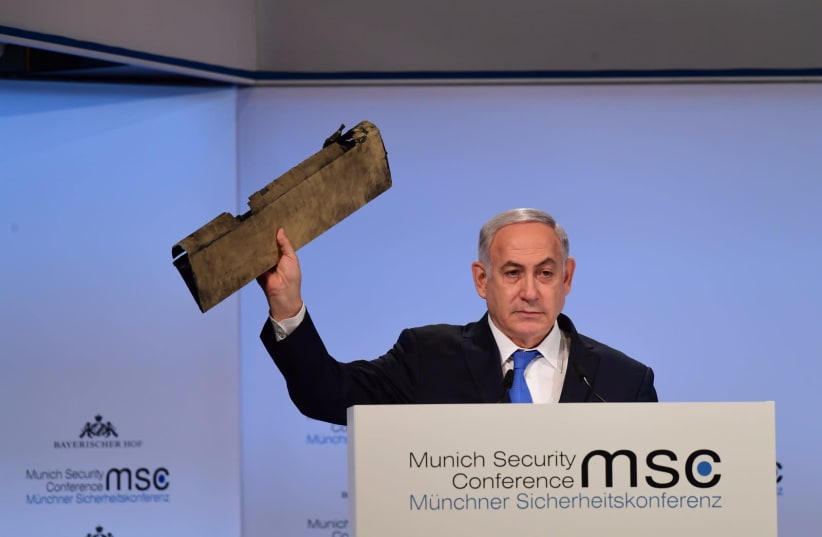
The Munich Security Conference has made the decision to exclude Israel from the main stage of the event because of the ongoing war, according to an N12 interview with organizers of the event on Monday.
This came as a surprise as the conference is one of the most prestigious in the field of national security, and Israel has historically been a major contributor to the event.
Until last year, the conference gave Israel's representatives a significant place in the conference. For example, Prime Minister Netanyahu and Defense Ministers Gantz, Gallant, and Ya'alon have been given central seats at the conference.
However, ahead of the conference that is expected to take place in two weeks, the conference management decided to reject all requests from Israel for significant appearances.
Defense Minister Gallant and families of the hostages' appearances were minimized
The request of Defense Minister Yoav Gallant's office to speak at the conference, as he has done in the past, was rejected. Gallant was instead offered to participate as a panel speaker.
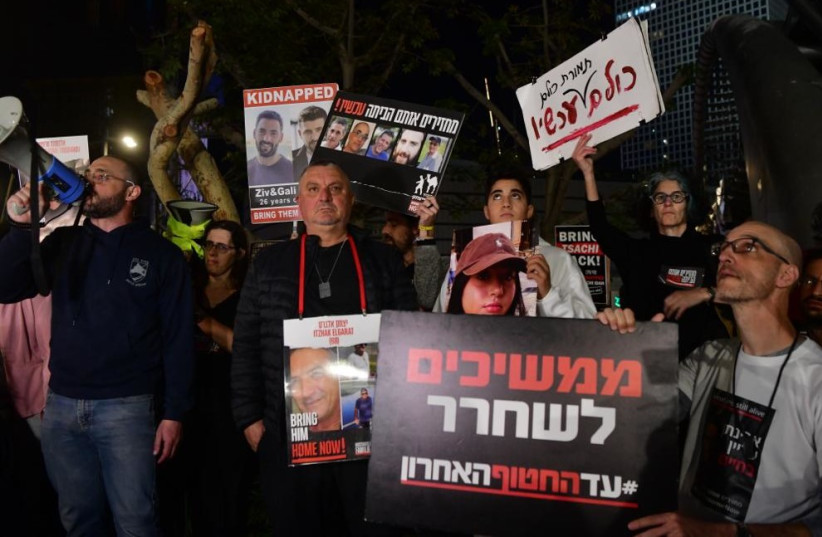 Families of hostages gather to call for a hostage release deal after three hostages were killed in an IDF rescue mission (credit: MAARIV)
Families of hostages gather to call for a hostage release deal after three hostages were killed in an IDF rescue mission (credit: MAARIV)The families of the hostages are also being pushed by the management of the conference. Their request to hold a ceremony recognizing hostages still in captivity with room for a lot of participants was denied.
The alternative offered to the families was to hold a "side event," which would mean fewer participants in the conference would take part, and the attention of the international media would also be limited.
The interview also mentioned that the organizer of the Munich Conference is Germany's former national security advisor, Christoph Heusgen, who reportedly has a problematic record regarding Israel.
One example of this would be him justifying the words of UN Secretary-General Antonio Guterres, who gave some legitimacy to the crimes of Hamas when he said that "the massacre of Hamas was not carried out in a vacuum" and opposed the defensive war that Israel is now waging.
Israel-Hamas War: What you need to know
- Hamas launched a massive attack on October 7, with thousands of terrorists infiltrating from the Gaza border and taking some 240 hostages into Gaza
- Over 1,200 Israelis and foreign nationals were murdered, including over 350 in the Re'im music festival and hundreds of Israeli civilians across Gaza border communities
- 136 hostages remain in Gaza, IDF says